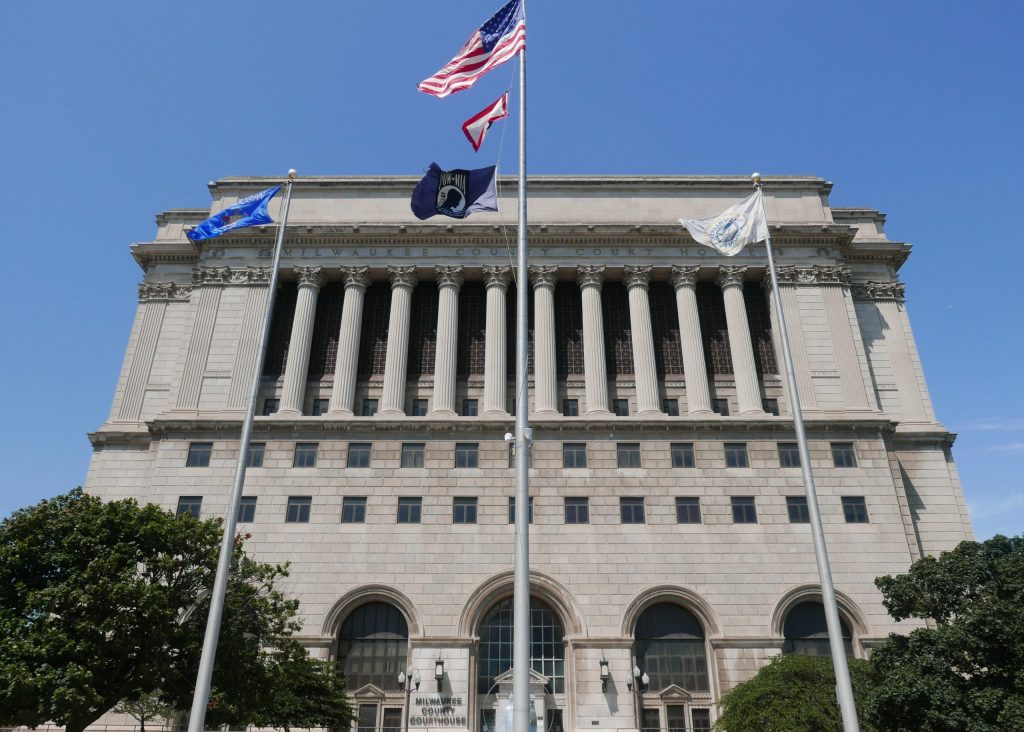County Budget a ‘Pleasant Surprise’, But Future Looks Rough
Annual Wisconsin Policy Forum analysis reveals county faces difficult decisions in future.
Milwaukee County may currently be experiencing the calm before the storm, financially speaking.
As county policymakers work on the 2025 budget, the nonpartisan Wisconsin Policy Forum (WPF) notes that the budget process is neither a celebratory triumph nor a dismal defeat but rather a “pleasant surprise.”
WPF describes the budget this way because midway through 2024 Milwaukee County was projecting it would be $19 million short by the end of the year. Policymakers cobbled together funding to close the gap in September, and now, with financial expectations tempered, they are working through a budget that avoids major budget cuts, but that also makes the return of budget gaps earlier than expected.
Act 12 allowed Milwaukee County to levy a new 0.4% sales tax starting in 2024. The sales tax freed up approximately $26.4 million in sales tax revenue for policymakers. At the time the sales tax was passed, the Office of the Comptroller was projecting budget deficits would return by 2026. But County Executive David Crowley, using a cost-to-continue strategy, had to close a $14 million budget gap before he presented his proposed 2025 budget.
The 2025 budget is approximately $1.4 billion, which is a $28.2 million increase from 2023, according to the policy forum. The county’s spending on operations will go up next year, while its spending on infrastructure will decrease. Infrastructure spending was elevated in 2024 as policymakers used the increased sales tax revenue to fund many projects sitting in the county’s maintenance backlog, which, as the policy forum points out, is heading toward $1 billion worth of projects by the end of the decade.
Despite the historic infusion of revenue by the new sales tax, 2024 failed to meet expectations, as sales tax collections failed to meet the county’s projections, increasing healthcare costs and heavy use of overtime in the Milwaukee County Sheriff‘s Office (MCSO) combined to create a surprise deficit. Some of these same factors played a role in the size of the 2025 budget deficit Crowley’s administration worked to close at the start of the budget process.
Spending on the Milwaukee County Sheriff’s Office and at the county’s correctional institution — the Community Reintegration Center — are eating away at the “promise of modest increased annual revenue growth” from Act 12 and the new sales tax. “Public safety spending would increase by $10.8 million (7.1%) – the largest percentage increase of any functional area in the budget besides non-departmental expenses,” the policy forum reported.
The 2025 budget includes funding for nine new deputy sheriffs to work as bailiffs in the courts. But even with the new bailiffs and the moving deputies from other service areas into the courts, it will not be enough to fully staff them, according to the county’s Chief Judge Carl Ashley. Funding for CRC would increase $5.3 million, or 8.8%, largely to cover increased costs associated with the healthcare and a food services contract.
Act 12 and the new sales tax have not provided the reprieve from difficult budgeting policymakers initially seemed to expect, and, as the policy forum warns in its report, there are a few major indicators that things can get significantly worse for the county in the coming years. That said, the forum still notes, “the benefits of the higher sales tax and new shared revenue paradigm will be ongoing, and it would be deeply unsettling to imagine what the county’s finances would look like without Act 12.”
One of the indicators of problems on the horizon is the Milwaukee County Transit System (MCTS) decision to stop developing a second bus rapid transit (BRT) project. The transit system halted the project to instead use the federal funding to backfill its structural deficit, extending business as usual until 2028. The move “was an acknowledgment that the county’s future challenges likely would preclude it from having the financial means to operate the BRT line even if it was built,” the policy forum reported.
Another indicator is that the county has few tools remaining to balance its budget beyond increasing property taxes. State law limits how much the county can raise its property tax levy each year, unless it is raising it to pay off debt. And it already has two massive projects increasing its debt load in the coming years: the new Forensic Science Center and the new Milwaukee Public Museum; and a third is looming, the new criminal courthouse, which will be the largest project in county history.
“That, in turn, may put pressure on policymakers either to limit increases in the operations levy even below the state caps if they wish to lessen the impacts on taxpayers, or to accept annual levy increases that are substantially higher than citizens have seen over the past decade,” the report notes.
The county does have a “well-stocked” rainy-day account. The fund, called the Debt Service Reserve, is used to pay down county debt or be tapped in emergencies. Policymakers are pulling from the reserve to balance the budget in 2025, and will likely continue to draw on it in the short term to balance budgets, WPF notes, and “aggressive use of it in the short term would deplete it before it will likely be more desperately needed to offset the longer-term debt service impacts of the criminal courthouse.”
The reality of the county budget, with more expenses than revenue coming in, has finally returned for county policymakers. Huge infusions of federal stimulus funding during the pandemic and the new sales tax only delayed the issue from rearing its head.
“It is possible, therefore, that these circumstances will require county leaders to again scrub departmental budgets and consider the liquidation of physical assets for savings, as they have done since the pension scandal first erupted in 2002,” the policy forum concludes. “Whether substantial savings still are achievable from internal consolidations and efficiencies and the sale of buildings or property after so many years of seeking them is an open question.”
How does the City of Milwaukee fare? See our coverage of WPF’s annual city budget analysis.
Legislation Link - Urban Milwaukee members see direct links to legislation mentioned in this article. Join today
If you think stories like this are important, become a member of Urban Milwaukee and help support real, independent journalism. Plus you get some cool added benefits.
Political Contributions Tracker
Displaying political contributions between people mentioned in this story. Learn more.
MKE County
-
Fellow Judge Testifies in Dugan Case
 Dec 16th, 2025 by Graham Kilmer
Dec 16th, 2025 by Graham Kilmer
-
Key Questions in Dugan Trial Take Shape on First Day
 Dec 15th, 2025 by Graham Kilmer
Dec 15th, 2025 by Graham Kilmer
-
FTA Tells Milwaukee to Crack Down on Fare Evasion — Even Where Fares Don’t Exist
 Dec 12th, 2025 by Graham Kilmer
Dec 12th, 2025 by Graham Kilmer






















Why is cop overtime not capped? Those costs need to get under control.
Sucks HUGE that the 2nd BRT line was scrapped, this would’ve been a huge development/improvement for transportation and traffic calming.
Thank heaven the brewers will be alright though
Colin: “Cop” refers to Milwaukee County Sheriff & Deputies in the M-County Budget. Milwaukee Police are part of the city budget, who also have lots of overtime. I have been informed that this is yet once again, another State mandate that is not paid for by the State.
When the County starts maintaining the parks (grass cutting, picking up the trash, parking lot maintenance) again, or cleans/picks up the trash along the freeways and medians next to the barriers) I will only then start to believe that the Country cares about anything. It cannot do the small things…so how can you even think that they can tackle the bigger items we need done?
mpbehar, the sentiment applies to all of them the same. Zero accountability as overtime runs rampant. “Can’t hire or backfill enough? Fine we’ll bankrupt the whole county/city with endless overtime instead, that’ll show ’em!”
This needs to stop.
Allocate labor and money to alternative resources (more specific and actually helpful) that aren’t Sheriffs or Deputies or Police or whatever they want to call themselves. Tired of these folks with guns, above the law, terrorizing our own citizens and trying to sell themselves as providing a beneficial service.
Colin: I’m in agreement, however private security and private police militias may be more costly than just paying overtime. When I speak to MPS (not County Sheriff deputies), they say they can’t find enough people to hire as police. Maybe that would be a good job for immigrants! Oh, wait, the Republicans have a different idea for immigrants!
It sounds like no matter how much the county raises taxes, it will never be enough when it is managed by stupid people🙄
Ryan Cotic: How do you mean “stupid”?